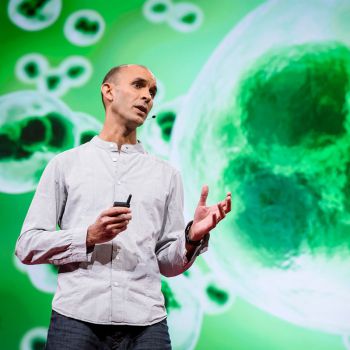News
What is consciousness? New Impacted podcast tackles the big questions with University of Sussex researchers
By: Neil Vowles
Last updated: Monday, 3 June 2019

Neuroscientist Anil Seth discusses his decades-long exploration of consciousness and the perception of ‘reality’ in the first of a new series of podcasts spotlighting the work of outstanding University of Sussex researchers.
The Sackler Centre for Consciousness Science co-director features in the first episode of Impacted – a new podcast series about research for real change.
Each half-hour episode will feature an interview with a researcher at the University of Sussex to consider the impact their work is having in the world.
In the first episode, Prof Seth tells hosts Suzanne Fisher-Murray and Will Hood how he made his way into his multi-disciplinary research specialism through a combination of obstinacy and luck.
Prof Seth said that consciousness remained outside the remit of natural sciences at the start of his academic career in the 1990s but he chose to pursue the subject anyway, building his research group (co-directed with Prof Hugo Critchley) at Sussex because of how the University’s structure actively challenged traditional discipline boundaries.
The work of Prof Seth has reached an audience far beyond academia through the success of his 2017 TED Talk, an in-depth 2018 podcast interview with fellow neuroscientist Sam Harris and Vice/Motherboard feature documentary The Most Unknown – along with artistic collaborations with playwrights Linda Marshall-Griffith and Nick Payne as well as ‘peer reviewed’ rap artist Baba Brinkman.
The episode also includes Prof Seth discussing the impact and public engagement around his work, including his role as a Wellcome Trust Engagement Fellow.
Impacted episodes will be released every month and are available to listen to for free from www.sussex.ac.uk/impacted.
The next guests appearing on the podcast will be Professors Gail Davey and Melanie Newport, who through their world-class genetic, public-health and social-science research work, have had a significant impact on tropical societies and economies where podoconiosis is endemic.